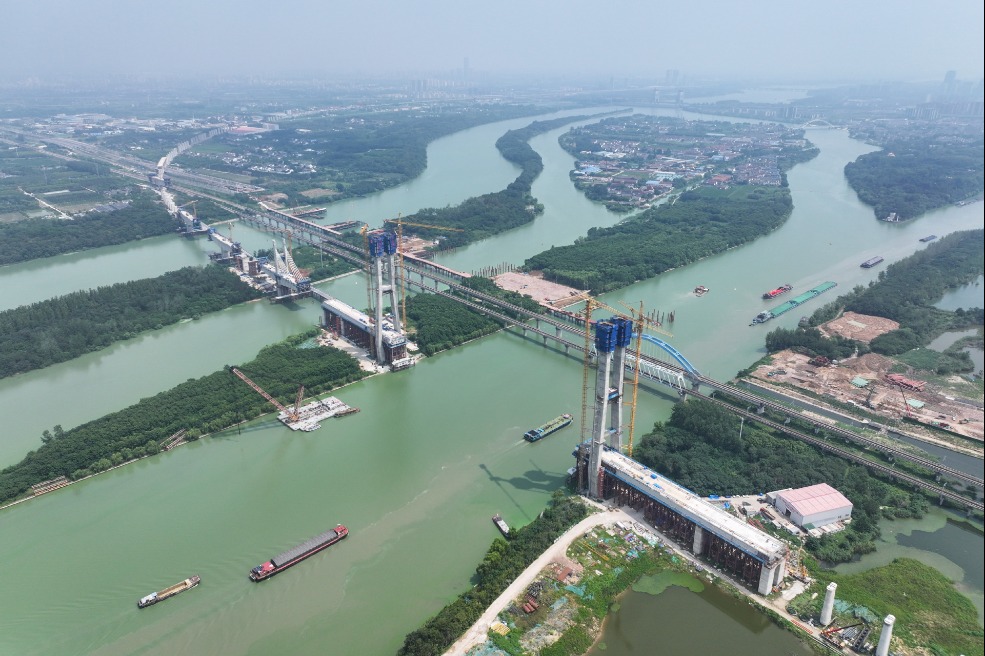HK’s confident of staying as a major global financial hub

Hong Kong has just regained the third spot in the latest Global Financial Centres Index published by London-based Z/Yen Group in September. Earlier, the Canada-based Fraser Institute again ranked Hong Kong as the world’s freest economy in the Economic Freedom of the World 2021 Annual Report, based on data collected in 2019.

Hong Kong has been at the top of the annual rankings issued by the Fraser Institute since the organization’s first world economic freedom report was released in 1996. According to the 29th Global Financial Index released in March, the Hong Kong Special Administrative Region was among the world’s top four financial hubs.
HKSAR government data show that the city’s economic recovery was more entrenched in the third quarter of this year, with the real gross domestic product expanding further by 5.4 percent year-on-year as the local COVID-19 situation stabilized along with the continued revival of global economic activities. Exports of goods continued to show year-on-year growth in the third quarter, as consumption-related activities increased.
Hong Kong’s labor market also continued to improve. The seasonally adjusted unemployment rate declined by two-tenths of a percentage point to 4.3 percent between July and September in 2021 — from August to October — while the underemployment rate fell by two-tenths of a percentage point to 1.9 percent. During the same period, the total number of people employed rose by 8,500 to 3,666, 500, and the number of unemployed fell by 8,800 to 171,800.
All this is good news for Hong Kong, especially in such challenging times. Hong Kong remains resilient despite the pandemic and the effects of the city’s social unrest in 2019. But it has been a complicated situation for Hong Kong for almost three years.
Hong Kong has faced unprecedented economic challenges since 2019. Although the city was in great shape in 2017 and 2018, the economic situation soon worsened, with 2019 and 2020 being two of the HKSAR’s most challenging years socially and economically because of the unrest and the pandemic.
However, it’s safe to say Hong Kong’s economy has remained strong despite the huge challenges and has shown signs of a gradual resurrection. Besides the official data released by the HKSAR government, the various global economic indices show there is clear acknowledgement of Hong Kong’s role as one of the world’s premier financial hubs — a hub that is not only able to maintain its position, but enhance it year after year.
The main caveat we should consider, though, is that of inbound tourism. Hong Kong’s inbound tourism has stayed virtually frozen, creating obstacles to a full economic recovery.
Hong Kong’s “zero-COVID” approach in tackling the pandemic has saved many lives and allowed its residents to live more comfortably and safely than people in many other places. The city eventually has to resume normal business with the world since COVID-19 is becoming endemic and is unlikely to disappear from our lives, probably never. More Hong Kong people are getting fully vaccinated amid the spread of new strains of the virus. Hong Kong should start resuming quarantine-free travel with the Chinese mainland first, followed by other economies, as Singapore is doing.
The new Omicron variant indeed poses a grave threat because of its higher transmissibility but, at the same time, Hong Kong cannot afford to live forever without tourism since the HKSAR has occupied the No 1 spot for years in the world’s most-visited-cities rankings. This is due to Hong Kong’s combination of being one of the world’s key financial centers, its enormous attraction for tourists, and the city’s unique geopolitical location as the gateway to the mainland.
Hong Kong’s future, nevertheless, seems bright. Hong Kong is currently involved in many projects that will not only help to keep its status as one of the world’s major financial centers, but also enhance it, such as the Guangdong-Hong Kong-Macao Greater Bay Area development. In the nation’s 14th Five-Year Plan (2021-25), the central government has again recognized Hong Kong’s potential at the national level and reaffirmed its commitment to support the HKSAR in strengthening its position as an international financial, trade and logistics center.
Hong Kong is also strongly developing its financial technology and virtual banking sectors. In June, the Hong Kong Monetary Authority unveiled Fintech 2025 — a strategy aimed at driving Hong Kong’s fintech development in the coming years.
Fintech 2025 aims to encourage the financial sector to adopt technology comprehensively by 2025. As HKMA Chief Executive Eddie Yue Wai-man said, Fintech 2025 will promote the provision of “fair and efficient financial services” for the benefit of Hong Kong residents and the local economy.
Going forward, Hong Kong will continue to be the gateway to the mainland, and also keep and strengthen its status as one of the world’s most important financial centers by adopting the very economic initiatives that are important to the Guangdong-Hong Kong-Macao Greater Bay Area’s development blueprint.
We should be very optimistic about Hong Kong’s current situation, as well as the future, as the city prepares to reopen itself to the world.
The author is a fintech adviser, a researcher and a former business analyst for a Hong Kong publicly listed company.
- China's new free preschool policy to save families $2.8 billion, benefit 12 million students
- Chinese university, research institute ink agreement to build future space hospital
- Walking between the Chinese mainland and Taiwan in ancient times
- Nine people pulled from Guangzhou landslide site, five remain missing
- China's phased free preschool education to benefit 12 million people this autumn semester
- China unveils plan to upgrade rural roads





































